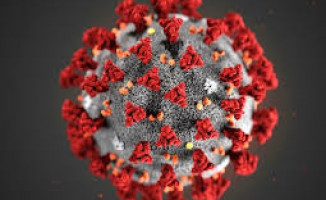
A recent international observational study provides important data on the safety of head and neck cancer surgery during the COVID-19 pandemic.
The findings are published early online in CANCER, a peer-reviewed journal of the American Cancer Society.
The study is part of the COVIDSurg Collaborative, an initiative to describe surgical practices during the early period of the pandemic, when many hospitals had limited capacity and when it was unclear whether it was safer to delay or continue in-hospital cancer treatments.
"The problems were particularly acute in head and neck cancer surgery because for many cases, cure is dependent on surgery, but there was great concern about spreading infection from aerosol-generating procedures in the airway," said corresponding author Richard J. Shaw, MD, FDS, FRCS, of The University of Liverpool Cancer Research Centre, in the U.K.
Professor Shaw and his colleagues in the COVIDSurg Collaborative examined information on 1,137 patients with head and neck cancer undergoing potentially curative surgery in 26 countries.
The most common sites were the oral cavity (38 percent) and the thyroid (21 percent).
The death rate within 30 days after surgery was 1.2 percent, a rate that would be normally expected in this patient population, without a pandemic.
Also, 29 (3 percent) patients tested positive for COVID-19 within 30 days of surgery; of these 13 (44.8 percent) developed severe respiratory complications and three (10.9 percent) died.
According to Professor Shaw, clinicians now know that these risks can be minimised with precautions such as staff testing, infection control measures, and vaccination.
Patients were more likely to test positive for COVID-19 when they lived in communities with high levels of COVID-19, when they had oral tumours, and when they received a tracheostomy (an opening created in the neck to facilitate placing a tube into the windpipe).
"The early consensus was that head and neck surgery was very risky for patients, particularly less fit or elderly patients, or those who required complex procedures or reconstructive surgery," Professor Shaw said.
"Our data are reassuring in this regard, showing that there is no additional risk of COVID-19 for these groups."
The investigators noted that insights from the study are especially important now, as many regions are experiencing a second wave of COVID-19 spread.
"Data from the COVIDSurg Collaborative have clarified the measures required to make cancer surgery safe, and critically, to inform priorities for both patients and healthcare systems," said Professor Shaw.
"For patients with head and neck cancer, the tumours present a much greater threat to life than the risk of developing COVID-19, assuming precautions are taken."
Source: WILEY
We are an independent charity and are not backed by a large company or society. We raise every penny ourselves to improve the standards of cancer care through education. You can help us continue our work to address inequalities in cancer care by making a donation.
Any donation, however small, contributes directly towards the costs of creating and sharing free oncology education.
Together we can get better outcomes for patients by tackling global inequalities in access to the results of cancer research.
Thank you for your support.